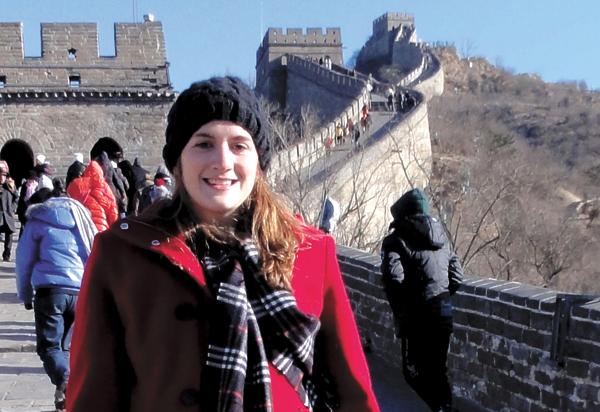
Against the backdrop of Chinese President Hu Jintao’s visit to the United States last week, First Lady Michelle Obama outlined the administration’s commitment to help increase the number of American students studying in China — and Binghamton University students are weighing in, too.
Mrs. Obama, along with Chen Naiqing, the wife of China’s ambassador to the U.S., and Mary Huntsman, wife of the U.S. ambassador to China, voiced support for President Obama’s “100,000 Strong Initiative” during a speech in the Washington, D.C. area.
The Initiative was introduced by President Obama during his trip to Shanghai in 2009 and launched by Secretary of State Hillary Clinton in May 2010.
According to the State Department, the Initiative “seeks to prepare the next generation of American experts on China who will be charged with managing the growing political, economic and cultural ties between the United States and China.”
In another speech at Howard University on Jan. 19, Mrs. Obama said study abroad programs increase mutual understanding between peoples.
“It is so important for more of our young people to live and study in each other’s countries — because that’s how you develop that habit of cooperation,” she said. “By immersing yourself in someone else’s culture, by sharing your stories and letting them share theirs, by taking the time to get past the stereotypes and misperceptions that too often divide.”
She also discussed the broader implications.
“Studying in countries like China isn’t only about your prospects in the global marketplace,” she said. “It’s not just about whether you can compete with your peers in other countries to make America stronger. It’s also about whether you can come together, and work together with them to make our world stronger.”
BU offers four study abroad programs: Chinese Business Language and Culture Summer Program, Total Art of Chinese Theatre Summer Program, Soochow University Program and Understanding Contemporary China Winter Program. The estimated costs for the programs vary from about $4,600 for the Business Language and Culture Program to about $8,700 for the Soochow University program, according to information from the Office of International Programs.
Kate Bronk, a BU graduate student in the Masters of Public Administration program, helped organize a three-week intersession program to Beijing, Shanghai, Hong Kong and Shenzhen. She said she supports the Initiative.
“Studying and traveling in China gave me a much better understanding of China’s culture and society,” Bronk said. “I learned more about China by seeing it first-hand and speaking with Chinese people than I ever did in school.”
Eva Kamer, a junior double-majoring in linguistics and Spanish, also studied abroad in China during the summer of 2010. She said it forced her to encounter “a situation where you are bound to be uncomfortable,” and that overcoming these situations made her more confident.
“Studying abroad will change you,” Kamer said.
During the speech, Mrs. Obama outlined new efforts under the Initiative. She noted that a Federal Advisory Committee was formed to provide guidance for the Initiative and that the Center for Global Advancement for Community Colleges (CGACC) was to launch a “Community College Mini-mester Program, providing shorter-term, more affordable study abroad opportunities.”
She also noted that Secretary Clinton launched the “Double the Numbers Challenge,” which asks “college and university presidents to double the number of students who study in China.” She added that a special emphasis would be placed on reaching “Hispanic-serving institutions and historically black colleges and universities.”
Mrs. Obama added that the “Chinese government is offering — listen to this — 10,000 scholarships to cover all in-country costs for American students and teachers who study in China.”
There are also private sector pledges, amounting to more than $2.2 million in support of the Initiative, which is solely supported by private sector funds from companies and foundations like Caterpillar Inc., Citigroup, Motorola Solutions Foundation and the U.S.-China Education Trust.
The pledges “will advance the goal of increasing the number of American students who study in China by 2014, particularly among underrepresented groups such as minority and community college students,” according to a statement from the White House.


